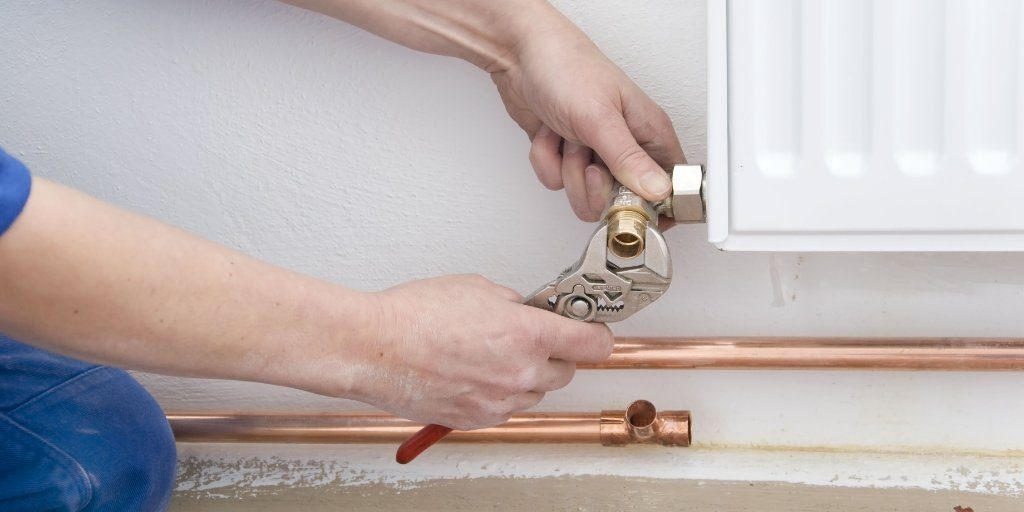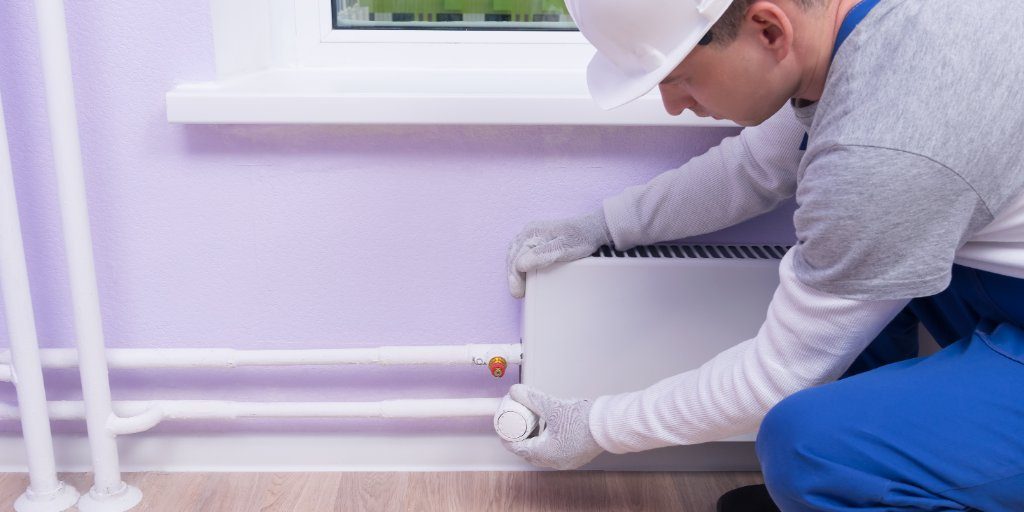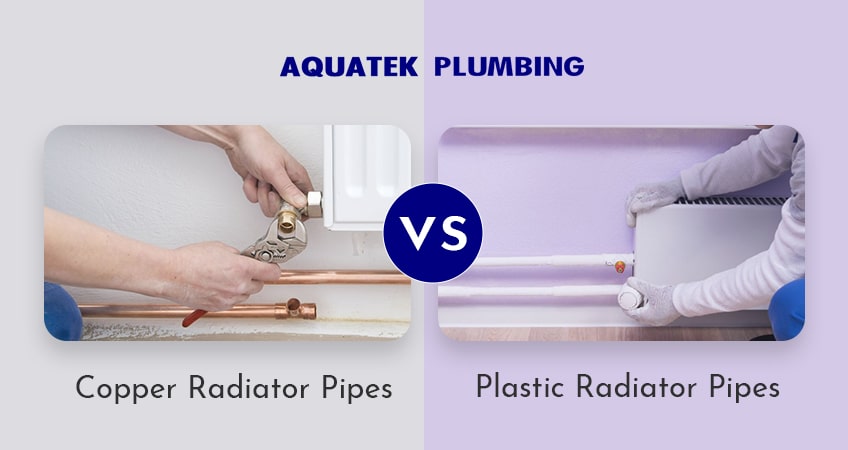There are many pros and cons to both copper and plastic radiator pipes. It can be difficult to make a decision between the two when considering the options for your home or building. Whatever you choose, you want it to be the right choice for your needs. Aquatek is a company of expert plumbing & heating engineers that are well equipped to help you navigate these choices. Over 35 years of reliable work to grateful customers sets them apart as experts, both in engineering and customer service. So, where do they suggest you start?
Copper Pipes


Copper pipes are one of the most common types of plumbing materials you will come across in a house, especially for the supply of water, but they are also used for hot water, drainage and in some cases, heating systems. Copper pipes are tried and true, and with good reason. But they also have a few drawbacks.
Pros of Copper Pipes
- Copper is a very malleable metal, it can be easily formed into different shapes and sizes to suit the need of the installation. It can easily be bent and connected to form complex piping systems and the joints can be soldered or crimped to provide a permanent seal.
- Copper is a great conductor of heat and electricity which makes it a very popular choice in heating systems, especially in commercial buildings.
- Copper has a better temperature retention than plastic.
- Copper is resistant to corrosion and will last for decades without needing any kind of maintenance.
Cons of Copper Pipes
- It comes at a price. Copper is slightly more expensive than plastic.
- Copper does not fair as well in constant contact with the ground as plastic does.
- Copper can only be used in low voltage systems.
What should I use copper pipes for?
You can use copper pipes for many things. They can even be used as building materials, but they have a couple key uses in heating a home. Copper pipes are extremely effective when used as radiator pipes, due to their ability to harness the heat. You should also consider using copper for your central heating & boiler pipes, due to their durability and ability to withstand temperature change.
Copper radiator pipes
These are the main pipes that transfer heat from the boiler to your rooms. They will be laid inside a metal casing that is either fixed to the wall or the floor and then connected to the boiler. A thermostat will be used to control the temperature at which the boiler is heated. This thermostat will open and close the circuit to the boiler, heating the pipes and then flowing through the circuit to heat the room. The thermostat can be set to a certain temperature and the circuit will be closed until the temperature increases and then it will open the circuit and the heat will be transferred to the room. Copper pipes are commonly used for this system because of their durability, resistance to corrosion and ability to withstand high temperatures.
Copper central heating & boiler pipes
These are the pipes that are used to transfer the heat from the radiator to the boiler. They are often attached to radiators using unions. A union is a device used to connect two pipes together. They are normally used to connect the central heating pipes to the radiator pipes. The central heating piping will have a pressure relief valve at the top of the circuit to prevent the boiler from being over pressurized. Copper is often used because it can withstand both that heat and pressure.
Plastic Pipes


Plastic pipes are becoming more popular as they are cheaper than copper. There are many different types of plastic that can be used to make pipes. They can be used for central heating, but they are not as strong as copper. There are different types of plastics that are suitable for use in freshwater, sewage or salt water, so one must consider all the types of plastic pipes before making a decision.
Pros of Plastic Pipes
- Plastic pipes are cheap. This is especially important if you are replacing a large section of pipe.
- Plastic pipes can be easily cut to the right length needed for the installation.
- Plastic pipes can easily be joined together using push fit fittings.
- Most types of plastic are resistant to corrosion.
Cons of Plastic Pipes
- Plastic pipes are not as durable as copper. If they are accidentally hit or if they are in contact with chemicals, they can crack and break easier than copper.
- Plastic pipes should not be used for high pressure systems because they are not strong enough.
- Plastic pipes do not last as long as copper pipes. They are not as resistant to corrosion and will break or crack sooner than copper.
What should I use plastic pipes for?
Like copper pipes, plastic pipes can also be used for a variety of structural and functional services. In reference to heating, plastic pipes are most commonly found in two roles. The first is underfloor heating. The flexibility of plastic helps with ease of installation for this project. Plastic pipes are also used, like copper, as radiator pipes.
Plastic underfloor heating pipes
Underfloor heating is about as simple as it sounds. Plastic pipes are bent and interlocked into a sort of grid beneath tile or wood to create a net of piping underfoot. These pipes are heated or cooled on command, and the temperature of the connected floor is adjusted accordingly. Plastic pipes are a common and recommended tool for this particular home improvement. There is little upkeep and an extensive amount of piping is needed, making it much more cost effective to opt for plastic over copper.
Plastic radiator pipes
Plastic radiator pipes are identical to copper radiator pipes, other than the material of course. While many go for this option, copper is still the leading conductor and container of extreme temperatures, and it is advisable to consider paying the higher price for a more reliable product for something as frequently used as a radiator.
A guide to plastic and copper pipes by Aquatek
Now that you have the facts, you’re basically one of the experts! The engineers at Aquatek recognize how important it is for customers to understand what they are paying for and play a role in the process of changing or maintaining the upkeep of their homes. If your interest has been piqued, consider calling Aquatek at 07793206136 for a free quote!



